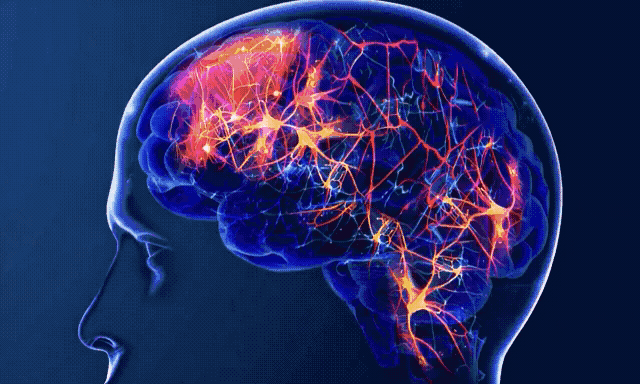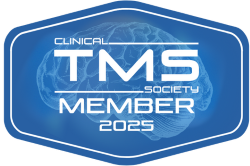Mental Health Crisis Hiding Inside of Cancer Treatment
October 13, 2025
How chemotherapy rewires your brain for depression and anxiety—and why cancer survivors feel guilty asking for mental health help

In this article:
- How chemotherapy literally changes brain chemistry beyond just "being sad about cancer"
- Why cancer survivors feel guilty asking for mental health help
- The impossible medication choices during and after cancer treatment
- Real stories of survivors struggling with chemo brain and depression
- How TMS offers safe mental health treatment without drug interactions
_________________________
Everyone focuses on beating cancer. Nobody talks about what happens to your brain during treatment. Or after.
The truth is, chemotherapy doesn't just kill cancer cells. It rewires your entire nervous system.
"Chemo brain" isn't just temporary fog. It's actual neural damage that can last months or years. Memory problems, concentration issues, processing delays. Your brain operating at 60% capacity.
Chemo also disrupts neurotransmitter production. Serotonin, dopamine, GABA—the chemicals that regulate mood, anxiety, and emotional stability.
Result? Depression and anxiety rates in cancer survivors are 2-3 times higher than the general population.
Not because they're "sad about having cancer." Because their brain chemistry got scrambled by the very treatments that saved their lives.
Maria, breast cancer survivor, came to me a year post-treatment. Scans clear, oncologist thrilled with her progress.
"Everyone keeps telling me how lucky I am," she said. "But I feel worse now than I did during chemo. At least then I had an excuse for feeling terrible."
She'd developed severe anxiety. Panic attacks about recurrence. Couldn't sleep. Brain fog so bad she'd taken disability leave from her job as an accountant.
Her oncologist suggested antidepressants. But Maria was terrified of adding more chemicals to her system.
"I just spent a year poisoning myself to kill cancer," she said. "Now I'm supposed to take more drugs to fix what the first drugs broke?"
This is the impossible choice we give cancer survivors. Your brain is damaged from treatment, but the only solution we offer is more medication.
Medication that might interact with ongoing cancer treatments. Medication with side effects that might mask cancer symptoms. Medication that adds to an already overwhelming pill burden.
What if there was another option.
TMS treats the neurological damage from chemotherapy without adding drugs to your system.
Chemo disrupts BDNF—brain-derived neurotrophic factor. The protein that helps neurons grow and connect. Without adequate BDNF, your brain can't repair the damage from treatment.
TMS stimulates BDNF production naturally. It helps regrow the neural connections that chemotherapy damaged.
Trauma is about fear, hypervigilance, intrusive thoughts about recurrence. Neurological damage is about your brain literally not working the same way.
Therapy helps with trauma. TMS helps with brain repair.
Susan, ovarian cancer survivor, was dealing with both. Terrified of recurrence but also cognitively impaired from treatment.
"I'd go to support group and feel crazy," she said. "Everyone talked about fear and anxiety. But my problem wasn't just emotional. I literally couldn't think clearly."
Her therapist was helpful for processing cancer trauma. TMS was helpful for restoring cognitive function. "I needed both," she said. "Therapy for my heart, TMS for my brain." The other piece nobody discusses is caregiver mental health.
Partners, children, parents who spent months watching someone they love fight for their life. They develop their own depression and anxiety.
"How can I complain when she's the one who had cancer?"
Tom's wife finished breast cancer treatment eight months ago. She's doing well. He's falling apart.
"I held it together during treatment," he said. "Someone had to be strong. But now that she's better, I'm a mess. I can't sleep. Can't stop thinking about what we almost lost."
He'd developed full-blown PTSD from the cancer experience. But felt selfish seeking treatment. "She's the patient, not me." But caregivers are patients too. They just don't get the support. TMS helped Tom process the trauma without feeling like he was taking resources away from "real" cancer patients.
We tell people they're "warriors" and "fighters." But when they're struggling emotionally after treatment, we make them feel weak for needing help.
Your brain went through hell.
Chemotherapy, radiation, surgery, steroids, anti-nausea medications. Months of chemical assault. Of course your neural circuits are disrupted. Of course you're not thinking clearly. Of course your mood is unstable.
That's not failure. That's neurobiology.
The research on TMS for cancer-related mental health is growing. Studies show it helps with:
Chemo brain and cognitive dysfunction
Depression in cancer survivors
Anxiety about recurrence
PTSD from cancer treatment
Caregiver depression and anxiety
All without drug interactions. Without masking cancer symptoms. Without adding to medication burden.
At KIND TMS, we've worked with dozens of cancer survivors. Breast cancer, lung cancer, colon cancer, blood cancers. All dealing with the mental health aftermath of treatment.
What they have in common is this: they felt guilty asking for help.
"I should be grateful I'm alive."
"Other people have it worse."
"I don't want to seem weak."
But asking for mental health support after cancer isn't weak. It's smart.
Your brain took a beating during treatment. It needs rehabilitation, just like any other injured organ.You wouldn't feel guilty doing physical therapy after surgery. Mental health treatment after cancer is the same thing.
Brain rehabilitation.
During Breast Cancer Awareness Month, let's expand awareness beyond just detecting cancer.
Let's talk about the whole person. The brain that got damaged during treatment. The emotions that need processing. The family members who need support.
Cancer survival isn't just about being cancer-free. It's about getting your whole self back. Including your mind.
If cancer treatment has left you struggling with depression, anxiety, or cognitive issues, seeking help isn't ungrateful—it's necessary for true recovery.
Come chat with us!

Meet the Author
Dr. Georgine Nanos, MD, MPH
Founder of Kind Health Group







